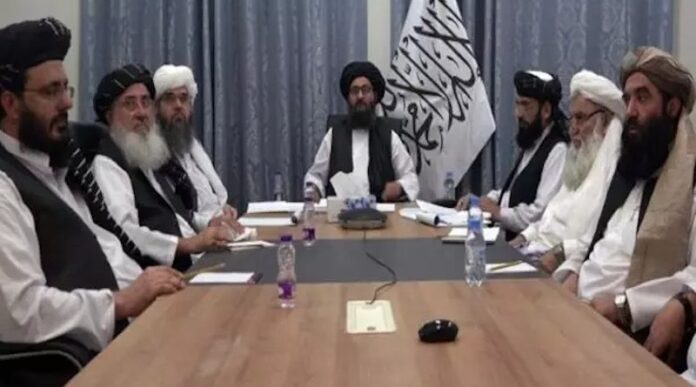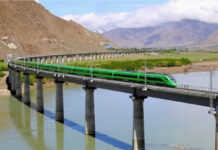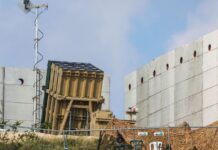In recent months there has been a significant expansion of the Taliban power within Afghanistan. It includes areas once controlled by the Northern Alliance—particularly Badakhshan, Takhar and Panjshir, which the Taliban had largely failed to capture in the 1990s. The international community has maintained a cautious stand vis-à-vis the Taliban, but Tajikistan, which shares a border with Afghanistan, has been critical of the Taliban. In almost every speech, even the ones not related to foreign policy, President Emomali Rahmon referred to the misfortunes of the Afghan people under the Taliban. Addressing the UN General Assembly in September 2021, Rahmon stated that the release of thousands of terrorists by the Taliban has put Afghanistan “on the path to becoming a breeding ground for international terrorism”.
By Jason Wahlang
Based on the reminiscences of the Taliban rule of the past, the changed scenario in Afghanistan has been a constant source of security and economic concerns for Tajikistan. It has decisively thrown its weight in support of a resistance movement against the Taliban and has made a clarion call for the establishment of an inclusive government in Afghanistan. Acting Taliban deputy prime ministers Abdul Salam Hanafi and Abdul Ghani Baradar have accused Tajikistan of interfering in the internal affairs of Afghanistan.
Tajikistan was a key supporter of the Northern Alliance in its resistance to the Taliban regime in the 1990s and enjoyed close ties with fellow Tajik leaders from Jamiat-e-Islami, particularly former president Burhanuddin Rabbani and commander Ahmad Shah Massoud, popularly revered as the “Lion of Panjshir”. Recently, in early September, at a time when the Taliban were struggling to extend their control over the Panjshir Valley, Tajikistan posthumously awarded country’s highest honour (Order of Ismoili Somoni) to both Rabbani and Massoud for facilitating and mediating inter-Tajik talks in the period 1993–1996 and making a significant contribution to the peace process in Tajikistan. Therefore, Tajikistan’s aversion to dealing with the Taliban regime in Afghanistan should not entirely come as a surprise. Its confrontational stand towards the Taliban can be attributed to the following reasons.
Ethnic Factor
In Afghanistan, where ethnic and tribal disputes are carried over through several generations, the return of a non-inclusive Taliban regime, comprising of majority Pashtuns with a sprinkling of Tajiks and other ethnic groups, has led to growing demand including from Tajikistan for an inclusive and representative government in Kabul.
For much of its recent history, Afghanistan has been ruled by various Pashtun dynasties. In the 1890s, there was a shrill campaign to Pashtunise Afghanistan. With the exception of King Habibullah Kalakani (1929) and former president Burhanuddin Rabbani (1992–2001), both ethnic Tajiks, Pashtuns have dominated Afghanistan’s political history and governance. The emergence of organisations such as Setam-a-Milli (an anti-Pashtun Tajik organisation) and Afghan Millat (a pro-Pashtun organisation) further complicated the inter-ethnic relations in the 1960s. Following the Soviet invasion in 1979, the Tajik-dominated Jamiat-e-Islami emerged as one of the most powerful anti-Soviet resistance groups. Led by Burhanuddin Rabbani and Ahmad Shah Massoud, Jamiat continued to play a significant role in post-Soviet Afghanistan. After the collapse of the Najibullah Government in early 1992, a coalition of mujahideen groups came to power in Kabul. Soon Rabbani took over as the president of Afghanistan. Four years later, with the fall of Kabul to the Taliban in 1996, the Tajik militia led by Massoud emerged as a key component of the anti-Taliban Northern Alliance. Though Massoud was killed in a suicide attack two days before 9/11, his forces along with Uzbek and Hazara elements of the Northern Alliance provided vital ground support to the US forces in their effort to overthrow the Taliban regime.
Post 9/11, the Tajiks enjoyed a significant share of influence in the governance, economy and politics of the country. However, the return of Taliban to power after two decades has led to a loss of influence for the Tajiks, as well as for the Hazaras and the Uzbeks. It is no surprise that the resistance against the Taliban regime first emerged from the Panjshir Valley, a Tajik stronghold, mainly led by former intelligence chief and vice president Amrullah Saleh and Ahmad Massoud, son of late commander Ahmad Shah Massoud. Several of these Tajik leaders have found sanctuaries in Tajikistan from where they seem to be guiding the anti-Taliban resistance front, ostensibly with the tacit support of Tajikistan’s leadership.
Security Concerns
Tajikistan fears that the Taliban takeover of Afghanistan may embolden the radicalised sections within the country to crank a call for ‘jihad’. During the Afghan–Soviet War in the 1980s, many Tajiks had secretly joined the ‘Afghan Jihad’, introducing them to Tajik nationalism and Islamism. Later, following the collapse of the Soviet Union and the emergence of Tajikistan as an independent state in 1991, these radicalised Tajiks formed the Islamic Renaissance Party (IRP), an opposition to Emomali Rahmon (then Rahmonov) government. Meanwhile, after the fall of Kabul to the Taliban in 1996, Massoud and Rabbani along with other anti-Taliban resistance leaders had formed the Northern Alliance, a Tajik-dominated coalition. The Northern Alliance needed support bases for launching operations which necessitated a fragile truce between the Rahmon Government and the IRP. It led to the end of the civil war in 1997 and Tajikistan joining the resistance against the Taliban.
With the Taliban making a full comeback, there have been reports of Taliban employing the Tajik terror group Jamaat Ansarullah as border guards in the Badakhshan Province. It is known in Tajikistan for its strident anti-government views. The possibility of Taliban using Ansarullah fighters to fuel unrest in Tajikistan remains a major security concern for Tajikistan. Therefore, faced with security concerns, Tajikistan has taken defensive measures to reinforce its border security. It includes military drills, increased troop deployment in the border areas and anti-terrorism exercises with China and Russia. The humanitarian crisis in Afghanistan has also led to a refugee influx in bordering Central Asian states. Tajikistan has taken initiatives to resettle about 1,00,000 Afghan refugees. There are, however, concerns about possible infiltration of Ansarullah and pro-Daesh jihadi elements amidst the refugees from Afghanistan.
Russian Factor
Tajikistan is a member of both the Collective Security Treaty Organisation (CSTO) and the Shanghai Cooperation Organisation (SCO). These are organisations with considerable Russian leverage, therefore, any step taken by Tajikistan vis-à-vis the Taliban is most likely to have Russian support. For now, Russia has refused to recognise the Taliban regime until there is an inclusive government in place13 , a stand similar to that of Tajikistan. As a major security provider in the region, Russia has also weighed upon the Taliban to retain its promise of peace with its neighbours, including Tajikistan. It has further called upon both Tajikistan and the Taliban to avoid confrontation.
Conclusion
The Taliban government in Kabul is yet to be formally recognised by any world power. Given Tajikistan’s unease over the developing situation in Afghanistan, the coming months can see a more strident role of Tajikistan. President Rahmon, who had a tough time dealing with the civil war in the 1990s, and has since struggled to keep the militant Islamists under check, would be cautious not to let the past repeat itself. Since Tajikistan is also economically the most fragile country in Central Asia, threats from regional and international terrorist networks add to its vulnerability. Rahmon may be using the anti-Taliban sentiments among the Tajiks to stoke up nationalistic fervour to consolidate his position vis-à-vis the Islamists in domestic politics.
While Russia has avoided recognising the Taliban government so far, its diplomatic engagement with the Taliban, especially within the Moscow Format, has only grown with time. Russian recognition of the Taliban government in future—along with China and other Central Asian states—would certainly put to test Tajikistan’s position vis-à-vis the Taliban.
This article first appeared in www.idsa.in and it belongs to them.








